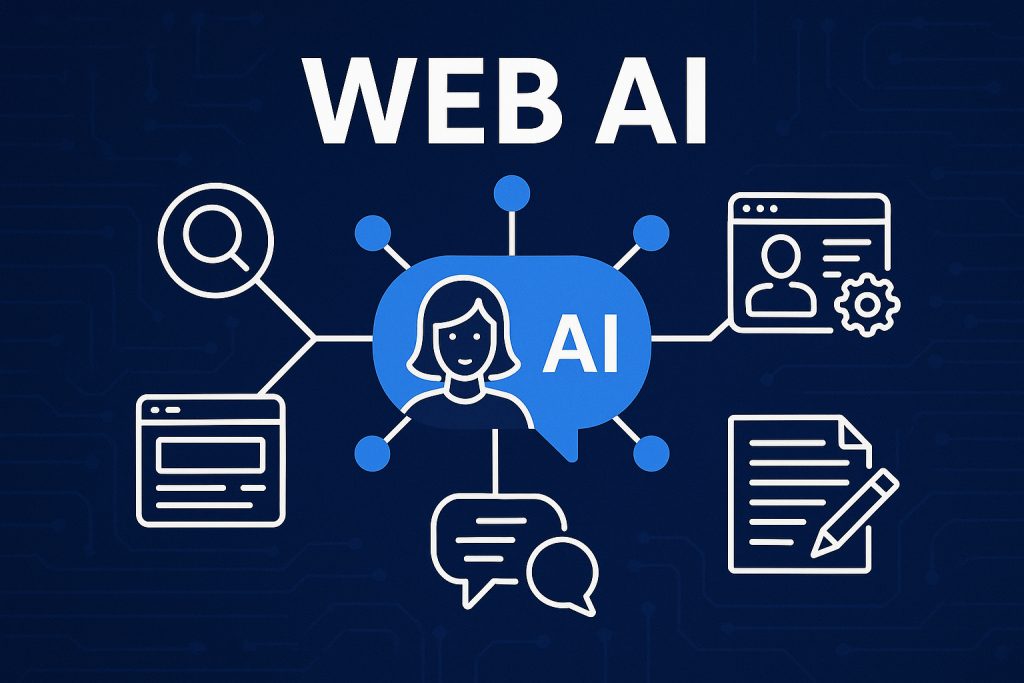
The internet has come a long way from static HTML pages and clunky search engines. Today, we’re entering a new era—Web AI—where artificial intelligence doesn’t just live in cloud-based apps or enterprise servers, but is seamlessly integrated into the way we browse, interact, and engage online.
What Is Web AI?
Web AI refers to the integration of artificial intelligence technologies into web platforms and services. It includes everything from AI-powered chatbots on websites to real-time personalization engines, automated content generation, and intelligent search. The goal? To make the web smarter, faster, and more human-like in its interactions.
Examples of Web AI in Action
- Conversational Interfaces
- Chatbots like ChatGPT, Google’s Bard, or site-specific AI assistants can now answer customer queries, help with navigation, and even make purchase recommendations—all in natural language.
- AI-Powered Search Engines
- Traditional keyword-based search is being replaced by semantic and intent-based search. Tools like Perplexity AI and You.com are examples of search engines enhanced with natural language understanding and real-time knowledge aggregation.
- Personalized Content and UX
- Web AI tailors website experiences to individual users by analyzing behavior, preferences, and even facial expressions. Netflix, Amazon, and Spotify are leaders in this arena.
- AI in Web Design
- Tools like Wix’s ADI or Webflow’s AI assistant allow creators to design entire websites using simple prompts, dramatically reducing development time.
- Real-Time Accessibility
- AI enables automatic translation, text-to-speech, and other assistive features, making the web more accessible to users with disabilities.
Why Web AI Matters
- Efficiency: Automation cuts down on manual work and speeds up everything from customer support to content curation.
- Scalability: AI can handle thousands of interactions simultaneously without a drop in quality.
- Insight: With AI-driven analytics, businesses can understand user behavior on a deeper level than ever before.
Challenges Ahead
Despite the promise, Web AI also presents challenges:
Dependence on Big Tech: Much of Web AI’s infrastructure is controlled by a handful of major players, concentrating power and limiting open innovation.
Privacy Concerns: AI often relies on user data, raising questions about tracking, surveillance, and informed consent.
Bias and Fairness: AI models can reflect societal biases, especially if they’re trained on unfiltered web data.




